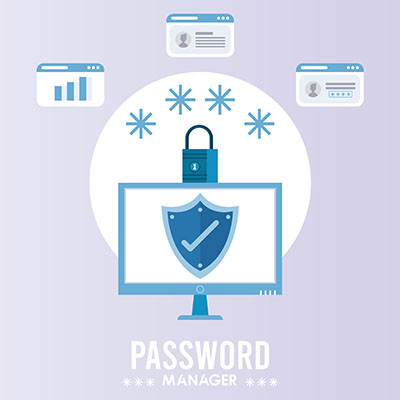It’s no secret that Google Chrome is one of the most popular web browsers in the world, if not the most popular. Still, most people don’t use the browser to its full potential, and they leave so many wasted opportunities to save time and resources on the table. Today, we want to highlight some of these tips, but also a couple of features that perhaps you didn’t know existed for Google Chrome so you can continue to get more value out of it as a business and productivity tool.
With technology being an integral part of our lives and society at large, cyberthreats continue to evolve and pose significant risks. One such threat that is on the rise is browser hijacking attacks. Let’s explore the dangers of these attacks, including the techniques employed by hackers, and how small and medium-sized businesses can protect themselves.
There is a lot of misinformation and misperceptions out there related to network security, especially where small businesses are concerned. In particular, browser security is one aspect where many individuals’ knowledge simply falls flat, and they buy into myths that put their data at risk. Let’s clear up some of these misconceptions so you can go about your day in a more secure way.
One of the reasons that information technology keeps changing is for the sake of the user and their convenience using it. However, if this convenience comes at the sacrifice of your business’ cybersecurity, it just isn’t worth it. This is the crux of why we always recommend that any organization seeking to use password management should invest in a reputable password management software, rather than the built-in capabilities of modern browsers.
How often have you been browsing the web on your phone, only to find something that would be legitimately useful for your work—maybe it was a tip you wanted to try out, or a bit of information that would be helpful to know—so you wanted to be able to access it from your workstation? There’s actually a very easy way to make this happen, thanks to the multi-platform nature of the Google Chrome browser.
Most accounts these days require a password of some sort, and as such, the average user has countless of these codes that need to be kept both secure and top-of-mind. Some web browsers have built-in password management tools to help make them more user-friendly, but with so much convenience involved, one has to ask whether or not these built-in management tools are as secure as they should be.
If you consider it, it’s amazing how much trust people have in Internet-based companies. They not only believe that these companies will fulfill their expectations, but that they will work to provide protection for some of their most valuable and sensitive information. Let’s take a look at some of the data collection practices that companies use and what they do with that data.
Google Chrome is the most-used browser in the world by a wide margin, which is part of the reason that it is so incredible that many people don’t know a lot about its built-in features. While we certainly can’t go through all of them in a single blog, we can offer a few tips describing the best of them.
Navigation is important for any computing system--particularly the Internet, where there are countless destinations. The Internet is comprised of various web pages, images, videos, and many other valuable little bits of content that are all connected by a web of links. These links are the cornerstone of the Internet, and we’ll explain the details of how they work and what they are.
In the fairy tale of Hansel and Gretel, the titular characters decided to leave a trail of breadcrumbs behind them, so they could find their way back home. While this strategy didn’t work out very well for the siblings, the same concept is used in computing today. We even refer to it as breadcrumb navigation in honor of the German fairy tale.
When you are surfing the web, do you know if you are secure? Typically, your browser will tell you when a site is secure or not. This is especially important if you are putting in sensitive information, like passwords or credit card information. Google Chrome is stepping up it’s game to keep users safe.
For most users the Internet browser is one of the most utilized applications on their computer or mobile device. With the influx of aggressive problems, it is mighty useful to know which Internet browser is the best for keeping your data, identity, and network secure. Today, we will take a look at the five most popular Internet browsers found on desktop and laptop computers and decipher which are the most reliable.





















